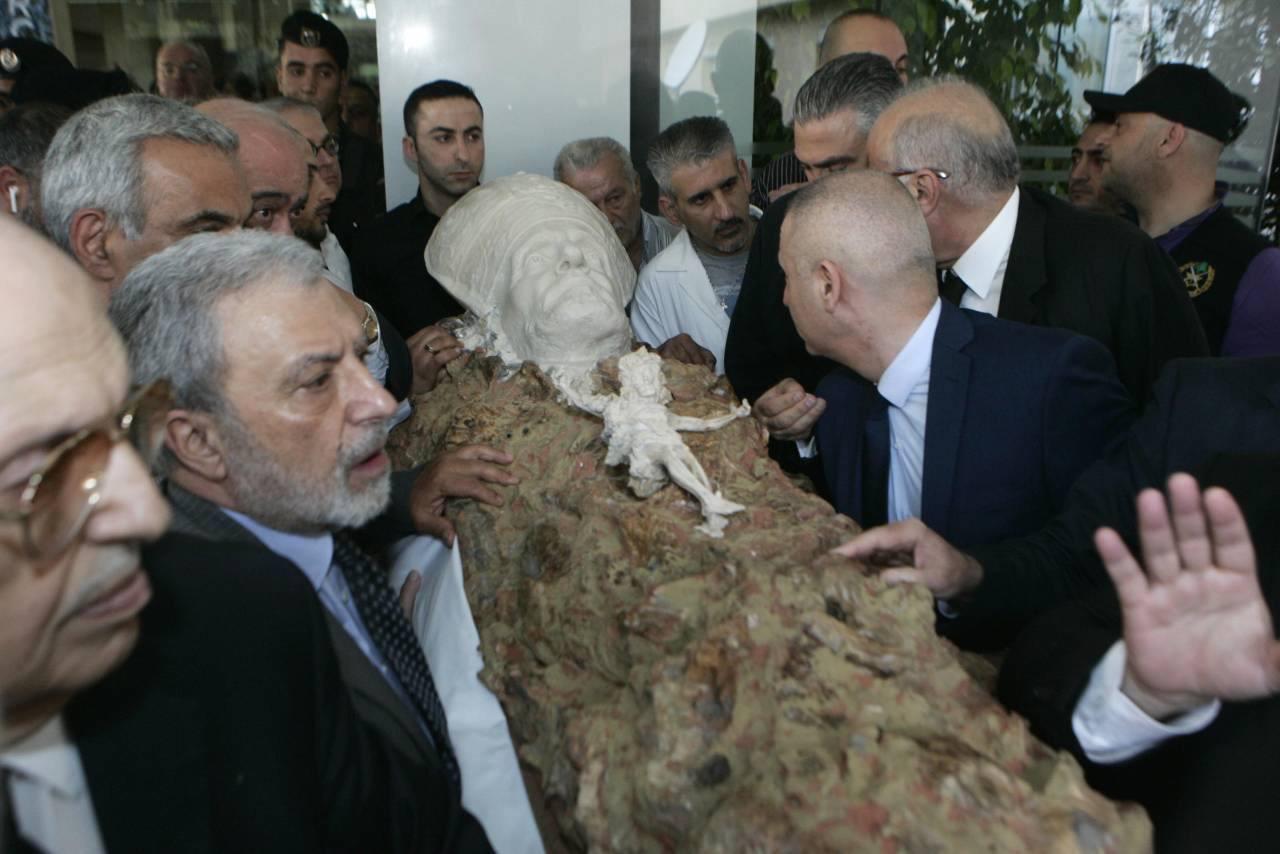
Cheikh Walid el Khazen paying his respect to our Patriarch
Cheikh Farid Haykal and Cheikh Amine el Khazen representing the el Khazen family as guardians of Bkerke
The el Khazen family headed a convoy carrying our Patriarch Cardinal Mar Nasrallah Boutros Sfeir to Bkerke
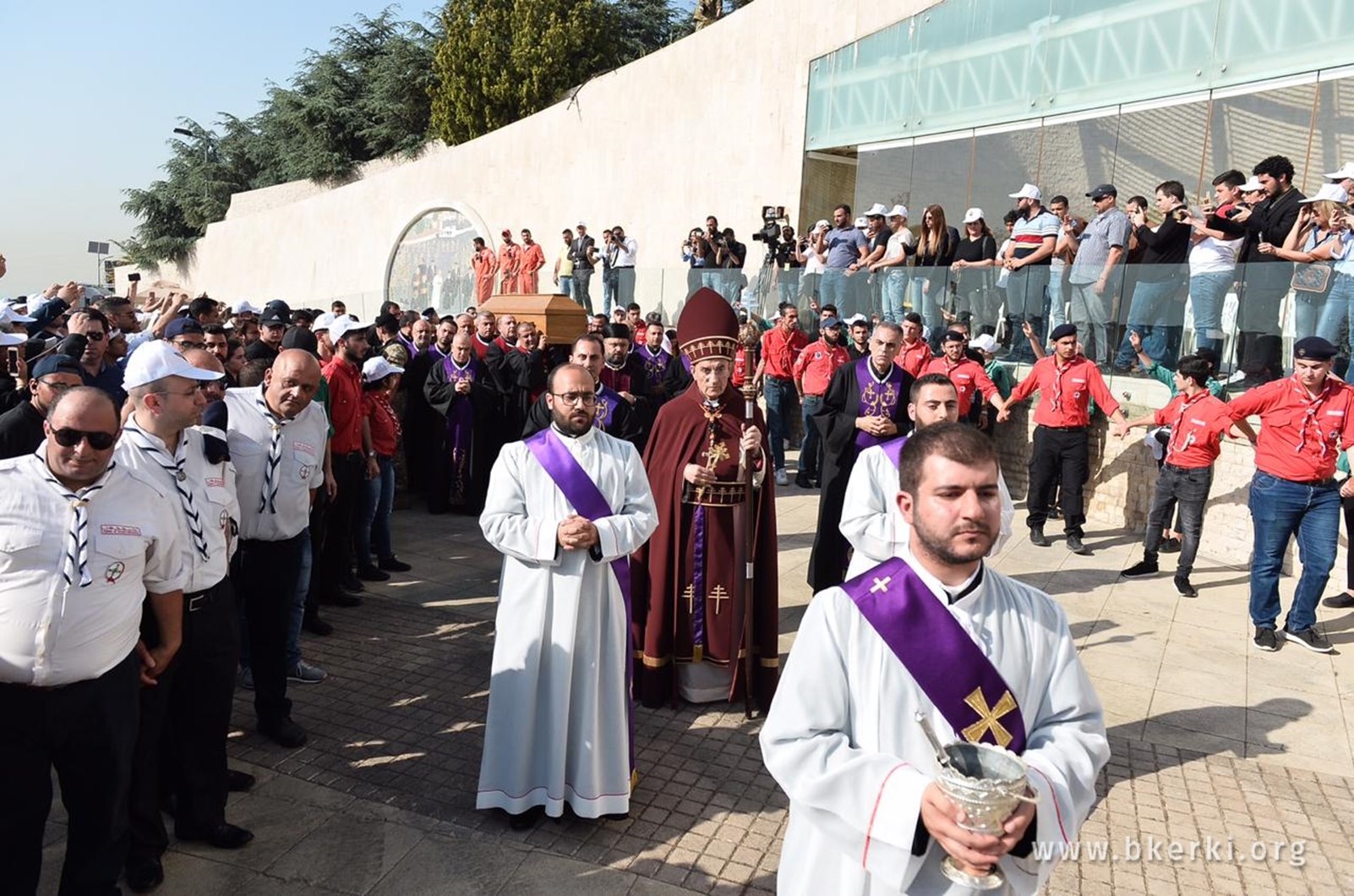
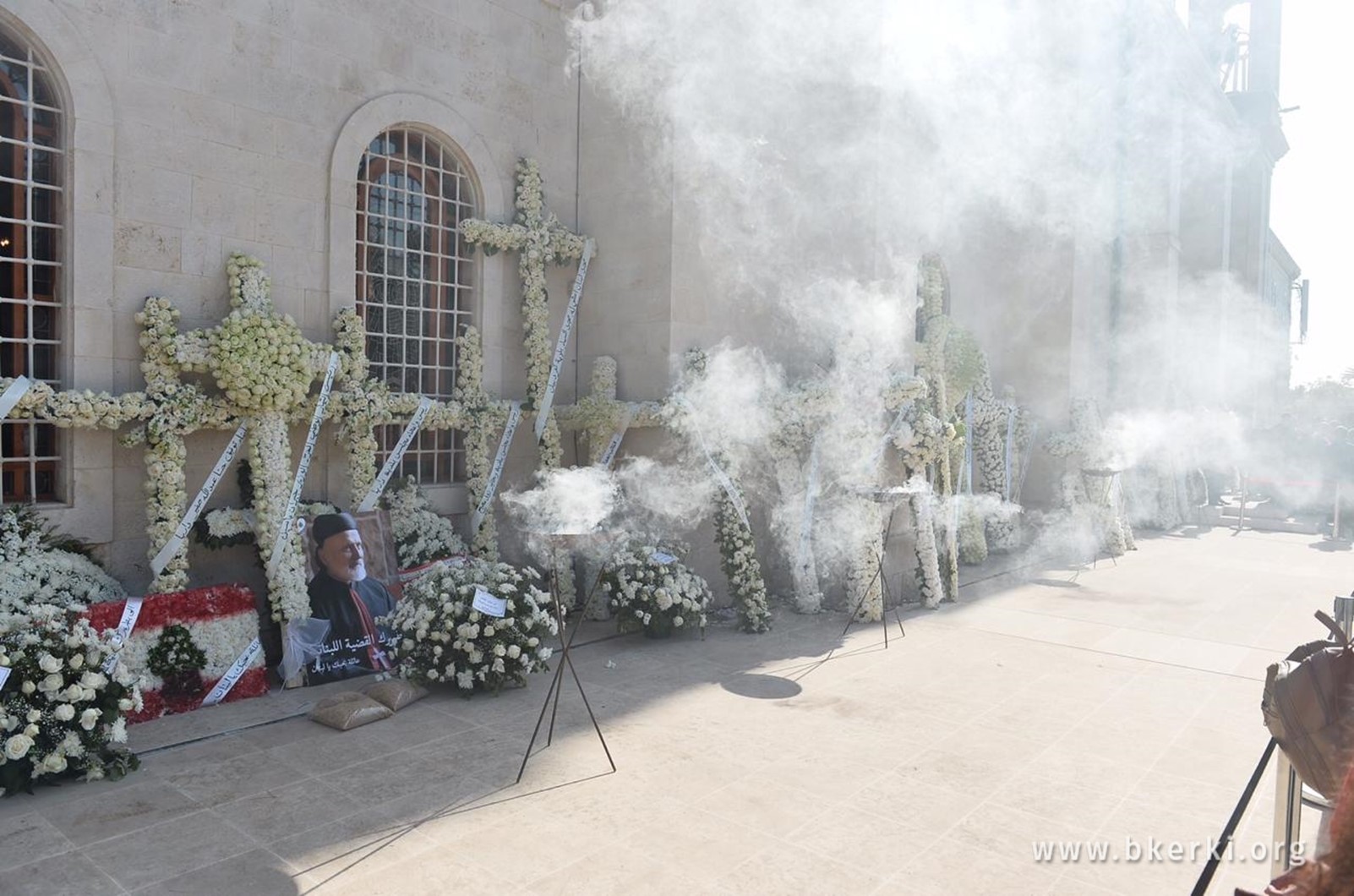
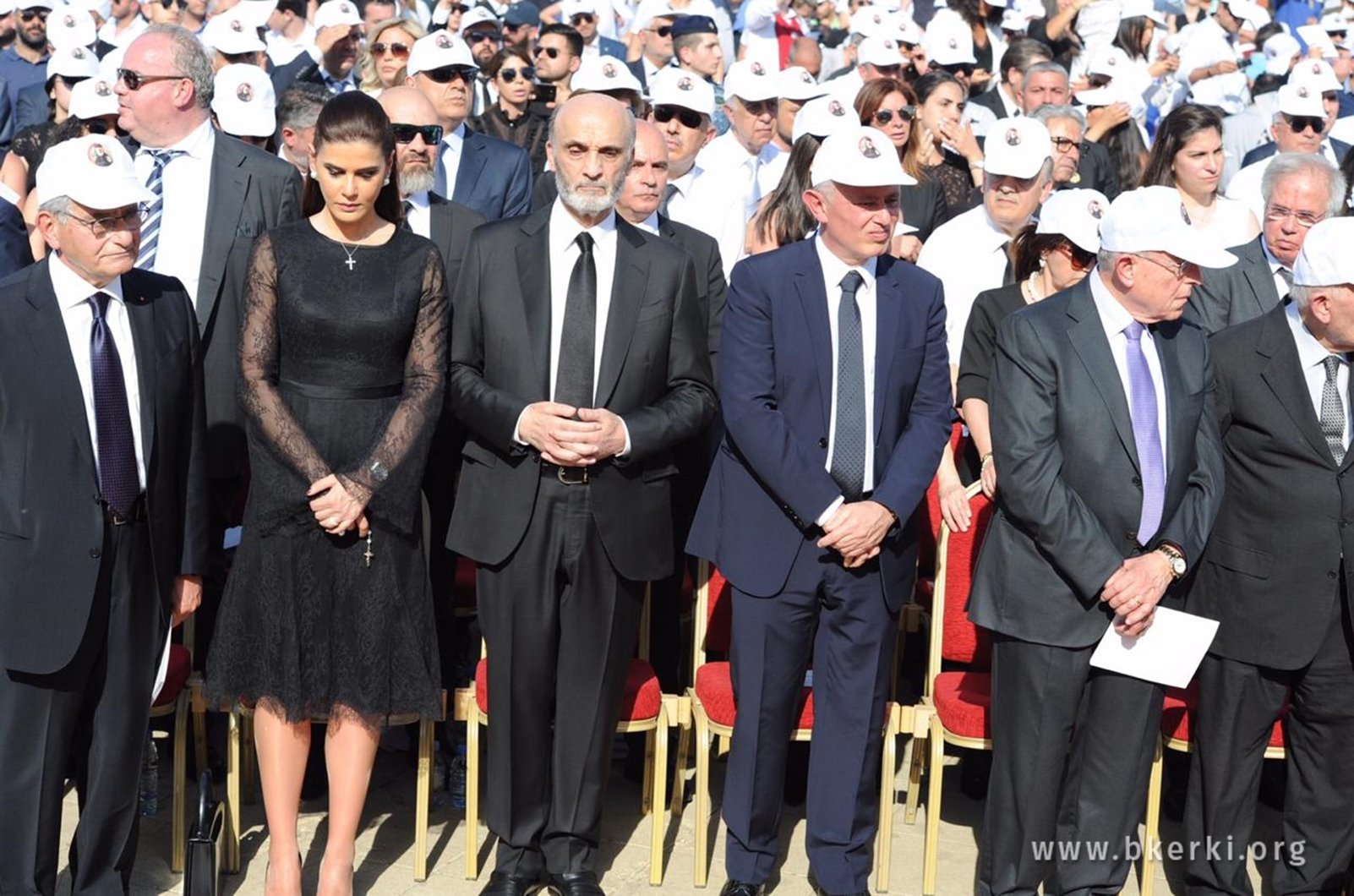
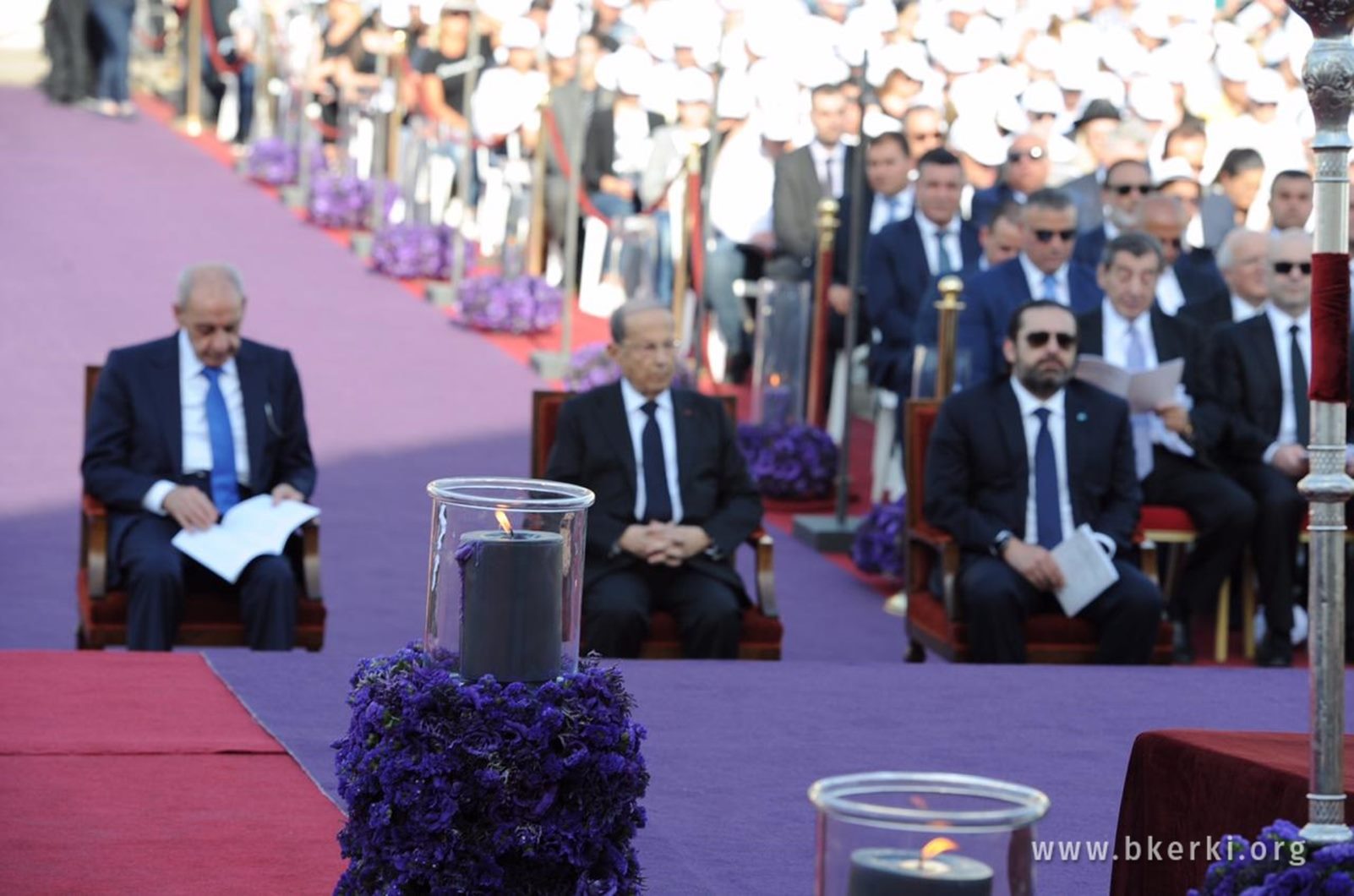



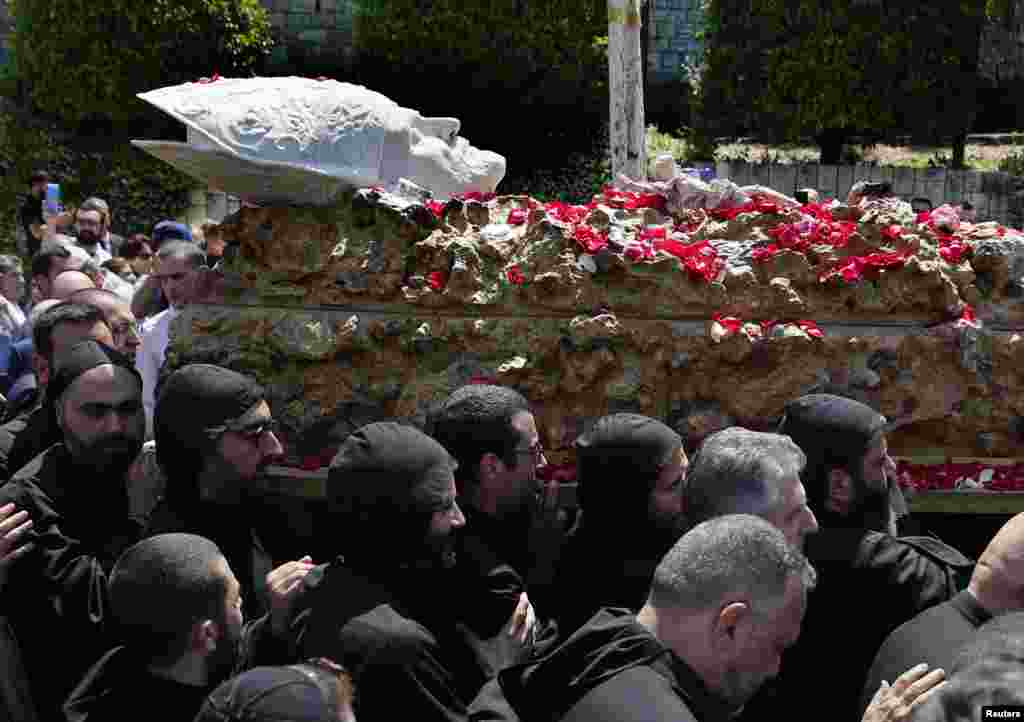
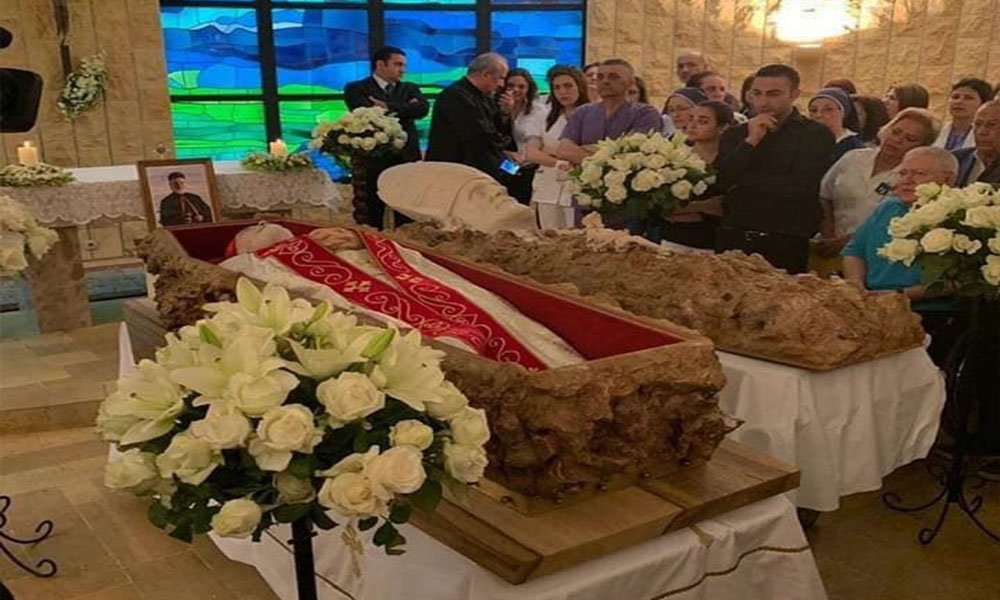
Our Deepest respect & Sympathy from the el Khazen family to our Patriarch Cardinal Mar Nasrallah Boutros Sfeir. We pray for you today. Today Lebanon is without a father with your passing.
by reuters — Bkerke — Lebanese political leaders and thousands of other people gathered on Thursday for the funeral of the former Maronite patriarch, Cardinal Nasrallah Sfeir, who pushed for Syrian forces to leave Lebanon after its civil war. Ten black-clad priests with purple scarves bore his wooden coffin, marked with a cross, out of a chapel and along a purple carpet through crowds of mourners as incense wafted around. They were led by the current Patriarch Boutros Al Rahi, wearing his burgundy mitre and robes and carrying a large cross, and by other priests holding the vestments of Sfeir.
President Michel Aoun, a Maronite, Sunni Muslim Prime Minister Saad Al Hariri, Parliament Speaker Nabih Berri, a Shiite Muslim, and numerous political party leaders sat among the mourners on Thursday. French Foreign Minister Jean-Yves Le Drian also attended, as did many foreign ambassadors and a Papal representative. The Shiite Hizbollah movement, a close ally of Syria’s government and an opponent of the United States, was not going to take part in the funeral, Lebanese TV channel MTV reported. The US State Department described Sfeir on Wednesday as “a courageous leader and a champion for the idea of a sovereign and independent Lebanon”. Hariri declared Wednesday and Thursday as official days of mourning and May 16 was also made a national holiday this year.
Pope sends condolences for death of Card. Nasrallah Sfeir
By Devin Watkins vaticannews.va — — “I extend my deep condolences to his family, and to all the faithful of the Patriarchal Maronite Church of Antioch, which he governed for many years with such gentleness and determination,” wrote the Pope in a telegram sent Tuesday to Cardinal Rai.
Architect of peace — Pope Francis called Cardinal Sfeir “a free and courageous man” and “a key architect of mediation, peace, and reconciliation”. “A staunch defender of his country’s sovereignty and independence, he will remain a great figure in Lebanon’s history,” said the Pope. “I ask the Father of all mercy to welcome into his home of peace and light this wise and committed Pastor who knew how to manifest God’s love to the people entrusted to him.”
by naharnet.com: Lebanon bids farewell on Wednesday to former Maronite Patriarch Nasrallah Boutros Sfeir, who died Sunday. Patriarch Beshara al-Rahi presided a prayer service in Bkirki in mourning of Sfeir. The convoy carrying the body of Sfeir departed early on Wednesday from the Hotel Dieu De France Hospital in Ashrafieh heading to Bkirki was headed by the el Khazen family Scores of people lined the streets from Ashrafieh to Jounieh to pay their respects. The Lebanese flag was flown at half-mast over the Presidential Palace in Baabda in mourning.
by dalystar.com.lb — Thousands of Lebanese people from across the country gathered Wednesday to bid farewell to former Maronite Patriarch Cardinal Mar Nasrallah Boutros Sfeir. While some stood at the side of the road waving flags and throwing petals over the hearse carrying Sfeir’s coffin, others made the trip to Bkirki, the seat of the Maronite Church, to pay their respects. Mourners had gathered in the hospital’s courtyard since the early hours of the morning, awaiting a glimpse of the impressive wooden coffin designed by Lebanese sculptor Rudy Rahme. The coffin, weighing more than 200 kilograms, was made by artist Rudy Rahme from Lebanese olive and cedar wood and topped by a relief of the late patriarch’s head, chiseled from stone originating from the Qadisha Valley.
As the convoy approached Bkirki, some abandoned their cars and began to make their way up on foot, clad in black, despite the 30 degree Celsius heat. Having passed through multiple layers of security, worshipers were greeted in Bkirki by giant screens bearing images of the late patriarch and loudspeakers playing hymns.








